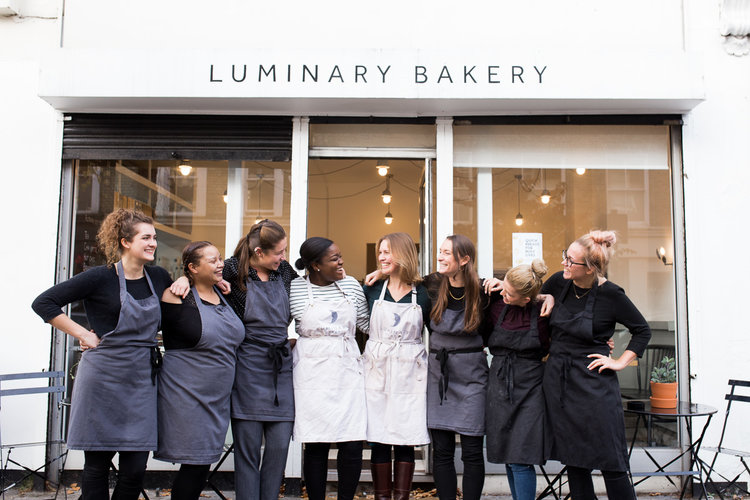Pret is one such brand. We are all familiar with the penny pot next to the till at outlets like McDonald’s and Pret. Often they give us vague promises about the pennies we donate going back to a ‘foundation’, the purpose and actions of which we know little. However in some of Pret’s stores you might notice a difference. Rather than a vague statement, we learn that the sum of the donation pot will help with the brand’s initiative to distribute left over food at the end of each day to food banks and homeless people in the local community. Tackling two of the biggest food related issues of the day (food waste and food poverty), Pret weaves itself into the community and allows consumers to support them both by shopping with them and donating, knowing that this is not an impersonal multinational brand, but rather one who thinks big impact on a small community.
Partnerships with local causes can be weaved even deeper into an on-the-go dining outlet. Ben & Jerry’s have recently opened a eat-in or take-away ice cream store in London’s Soho. You can indulge in a huge range of delicious flavours, in lovely cones or on tasty cookies. But these cookies are more than just gooey goodness. The store has partnered with a North London’s Luminary Bakery, a social enterprise dedicated to giving women at a social and economic disadvantage a space and profession in which they can build brighter futures. Ben & Jerry’s is supporting a brilliant social enterprise to empower more women, many of whom are refugees, and raise the profile and success of initiatives such as this. Ben & Jerry’s has steadily made its commitment to being a force for good known, and replicating structures such as the one in their Soho outlet is a truly impactful decision.
Jamie Oliver’s Fifteen restaurant is another example of how a big brand can impact the lives of individuals and encourage change in a community; this time focusing both on giving real opportunities to people who have had difficult pasts and then challenging common perceptions. Historically, Jamie Oliver’s Fifteen restaurant gave one year apprenticeships to young adults who had challenging backgrounds, and gave them skills and knowledge to change their futures. This helped them, and also started conversations among customers about how to give equal and amazing opportunities to everyone.
There’s often an understanding that big brands must engage with big initiatives when it comes to social change and CSR. It is common to see certain meals in restaurants being linked to charitable donations, but the initiatives mentioned about show that big brands can be meaningful parts of small communities, and really give back directly to the community they exist in. It seems that the world of dining has a particular affiliation with this approach: perhaps partly it’s wanting to share the joy we get when we eat great food, and perhaps it’s also due to the cultural significance of togetherness and sharing good fortune that exists in food. Creating partnerships and initiatives that address small elements of societal problems gives a whole new dimension to the term ‘eating well’.


